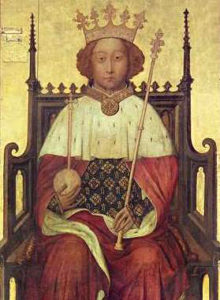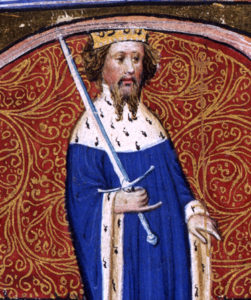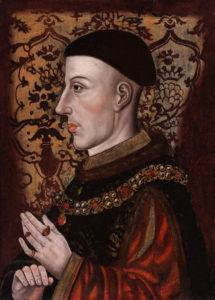Professional actors spend their lives training and working on their craft, so that they are able to deliver a wonderful experience to you on the night you attend a performance. Emilie Krause, who will be playing Henry for Delaware Shakespeare this summer, is currently studying at Canada’s National Voice Intensive for a month. As an audience member, you will reap the benefits of this heavily Shakespeare-based training program. Emilie will share some periodic thoughts with us, connecting what she is learning at the Intensive to what she hopes to apply on stage for you this summer.
History is a mess. The actual past, the tumble of interconnected and random events that happened in a noisy clamor and then deposited us into the present, will always be mysterious to us. Nothing to be done. We might crack open a new question, or catch glimpses of the edges of truth, but the past will always be a cloud because events are unshakably subjective. Shakespeare gave us “history plays”, but the label is a lie. Yes, Henry V existed. He went into battle with his soldiers, he married a French princess. These things are true. But beyond the skeletal set of actions within Shakespeare’s plays, the rest is woven out of rumor, conjecture, and their context. So rather than thinking about Henry V as a person who lived and breathed in 15th century England, I’ve been thinking about the history plays as an evolution of thought.

We’re studying Richard II at the Intensive. I had never read the play before, and when I think of the Shakespearean “Richard” my imagination is always drawn to the deliciously twisted Richard III. This earlier Richard, Richard II, was a contemporary of Henry V’s father, Henry IV. The lineage of the English crown is a difficult one to track, but the three (Richard II, Henry IV & Henry V) men intersect at a particularly interesting time. Through a series of events, Henry the IV inherits the crown from his cousin Richard II. Henry IV was not next in line for the crown, and this deviation from tradition plants the seed for the famed War of the Roses. But, what arises out of this atypical transition of power is: what is a king? In Shakespeare’s version of history, both Richard II and his eventual predecessor Henry V wrestle with the same question.
In Richard II, as events in the kingdom begin to turn against his leadership, King Richard begins to voice his confusion about the very essence of royalty:
I live with bread like you, feel want,
Taste grief, need friends. Subjected thus,
How can you say to me I am a king?

He muses on the ultimate power of death over royal blood, and the irony inside the act of worshiping a mortal body who is subject to the same unshirkable demise as any other human being. By the end of the play, Richard’s own sense of uncertainty is what costs him the crown, he gives up his seat freely to his cousin, who, though not divinely ordained by the normal royal lineage, has proved himself more worthy of the crown than Richard.
O, that I were a mockery king of snow,
Standing before the sun of Bolingbroke,
To melt myself away in water-drops!
Richard II vacillates between outrage and self-doubt for most of the play. What is interesting is the man who inherits the throne some decades later, wrestles with similar questions. In Henry V, from the very first scene, the young king actively questions his advisors and eventually himself, about what is “right” for him to do as a king. Henry is so curious about the validity of his kingly actions that he dons a disguise and wanders around his camp, talking to the soldiers. While in disguise he attempts to explain a king’s humanity:
I think the king is but a man, as I am: the violet smells
to him as it doth to me: the sky shows to him as it doth
to me; all his senses have but human conditions.

What interests me is that the two men develop opposing theories out of the same thought. Richard says: I am not a king because I am a human being. Henry V says: A king can be nothing but a human being. Both men recognize the mortal contradiction within their kingly position, the first is defeated by the question and the latter uses the question to be a better leader to his people.
Over the years that Shakespeare spent writing the plays, he may not give us history as it was, but he gives us something unshakeable and concrete. He gives us an evolving thought, about what we should look for in our leaders. Whether or not these men thought these thoughts, or asked these questions, Shakespeare did. And I suspect he is suggesting that we ask those questions as well. In fact, I think there is no better time than the present, to ask ourselves: what makes a good leader?




